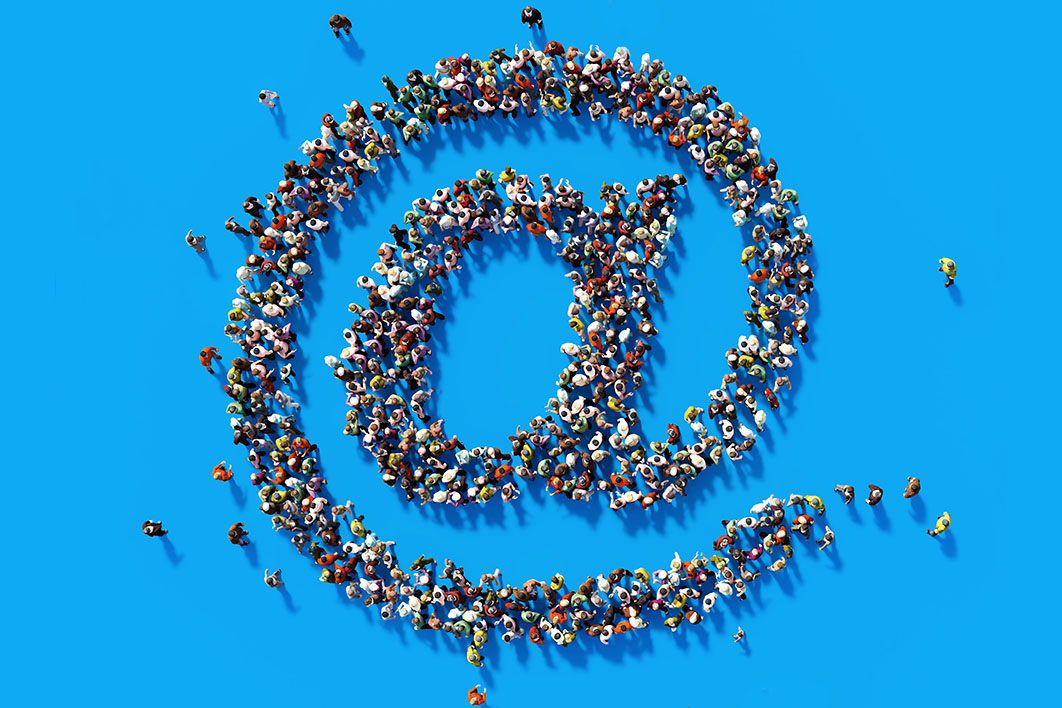A World Without Email: Reimagining Work in the Age of Overload
By Cal Newport | Portfolio | $32.99 | 320 pages
Earth’s biggest problem, according to the late, great Douglas Adams, is quite simple: the species of clever ape that thinks it runs the joint is mostly unhappy most of the time. As Adams wrote in the foreword to his classic work of philosophy, The Hitchhiker’s Guide to the Galaxy, Earthlings are “increasingly of the opinion that they’d all made a big mistake in coming down from the trees in the first place. And some said that even the trees had been a bad move, and that no one should ever have left the oceans.”
To these basic errors of human evolution, computer scientist and author Cal Newport would now add the invention of email. Our lives, he argues, have been made wretched by this brilliant technological innovation.
In his new book, A World Without Email, Newport makes a strong case against this pervasive method of communication. We live in servitude to our email servers, he says: always reachable by anyone, all the bloody time. At the heart of this digital catastrophe is something he dubs “the hyperactive hive mind,” the new reality in which everyone, everywhere, can communicate with everyone else with ease — and so they do.
Numerous studies have shown how dominant email has become in ordinary office life. The average knowledge worker sends and receives 126 of the things every working day. In an eight-hour day, that’s more than one every four minutes. Ping. Ping. PING!
“There’s something uniquely deranging about digital messaging,” Newport argues. “We depend on email, but we also kind of hate it.” It renders office workers less productive and more irritable, creating a debilitating scarcity of uninterrupted time. Those essential parts of the day when the real work gets done have been invaded by streams of customer satisfaction surveys, announcements of new training modules, and badly written email chains from colleagues in far-off time zones.
All of this might be bearable if it weren’t for one little problem: the incompatibility between modern-day electronic messaging and our own information-processing capacity. As Newport puts it, “Our brains were never designed to maintain parallel tracks of attention.” Multitasking, he says, is a dangerous myth. Our prefrontal cortex just ain’t up to the dual challenge of thinking coherently while dealing with an overloaded inbox.
We also thrive on conversations held in synchronous time. In other words, we like meetings where we get updated about the project we’re working on at the same time as everyone else. “Meetings, bloody meetings” may have been the collective moan of the pre-email age, but it was better than our fellow workers responding tardily to no-longer-urgent requests.
For most of human history we lived in small groups in which, Newport says, we felt anxious if we didn’t talk to everyone else in the tribe at least once a day. Now we live in massive digital villages, and our atavistic desire to make and maintain connection means we have conniptions if we don’t answer every damned email.
Our social anxieties about communication have also created what Newport calls a “cycle of responsiveness.” We quickly learn that the etiquette of the digital world means always being available online, no matter how grumpy it makes us. Before we can say “sleep deprivation is death,” we’re sharing our bed with a smartphone.
Despite his book’s title, Newport isn’t against electronic messaging as such; what drives him to despair is how we use it. Having got office workers of the world nodding in furious agreement, Newport courageously offers some solutions.
In 2017 a German entrepreneur named Lasse Rheingans invented the No Email Working Day. Productivity went up, even though he allowed his workers to arrive at 8am and leave by one in the afternoon. “Rheingans’ goal was for everyone to slow down,” writes Newport. “To approach their work more deliberately and with less frantic action.” Emailing is often just a hollow masquerade of real labour.
Newport also wants companies to use software packages that allow projects to be undertaken without giving everyone involved carte blanche to email everyone else in an unstructured, time-wasting manner. An applications called Trello, for example, allows organisations to work on projects without using email at all; everyone in the team can access the necessary data and decide when they need to jump in and get things done.
Autonomy at work is one of life’s greatest satisfactions. Dealing with email when it’s out of your control is a lot like being pecked to death by a flock of geese. But like a lot of bad things in modern life — the third glass of wine, the overuse of Uber Eats — it will be hard to vanquish.
In the end, I think, Newport underplays the barriers to change. What he calls Attention Capital — the ability to think without interruption — is in constant tension with the Dopamine Economy. Somewhere in Palo Alto, frazzled, email-tormented workers spend long, exhausting days trying to make staying online as addictive as possible for all their miserable counterparts by tapping into those parts of our ancient brains that derive pleasure from constant stimulation. •




